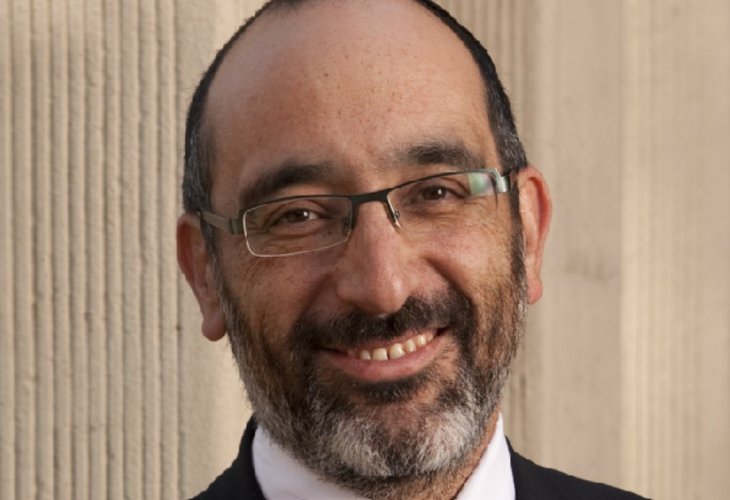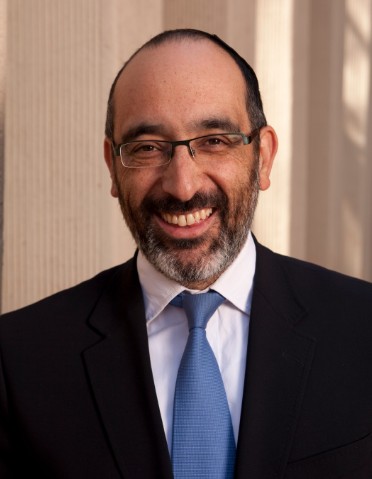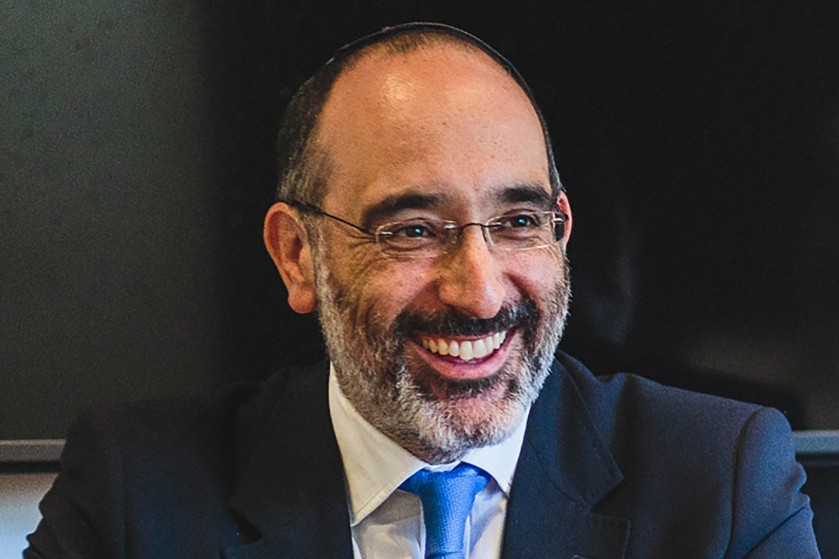South Africa's Chief Rabbi: We Are Stricter Than the President Because of Pikuach Nefesh Concerns
Why are South African Jews more stringent than the President's orders? How do yeshiva students and seminary girls returning from Israel cope with isolation? What helps them during this crisis? Rabbi Dr. Warren Ze’ev Goldstein, Chief Rabbi of South Africa, in a special conversation.
 Rabbi Dr. Warren Ze’ev Goldstein. Photo credit: Courtesy of World Shabbat
Rabbi Dr. Warren Ze’ev Goldstein. Photo credit: Courtesy of World ShabbatIt seems that almost no country around the globe has remained immune from the formidable coronavirus. This week, the virus also spread in South Africa, leading to a series of protective measures. However, while the country's president issued somewhat moderate guidelines, the Chief Rabbi of South Africa and initiator of the 'World Shabbat' project, Dr. Warren Ze’ev Goldstein, issued much stricter guidelines.
In a conversation with him, he frankly says: "I believe there is a doubt of pikuach nefesh, so we must act as our sages instructed us: 'Danger is more severe than prohibition.' When we look at other countries, we see that some have shut down all synagogues and completely canceled group prayers. We are still seeking a balance, but it may ultimately be necessary to tighten the guidelines."
 Rabbi Dr. Warren Ze’ev. Photo credit: Courtesy of World Shabbat
Rabbi Dr. Warren Ze’ev. Photo credit: Courtesy of World ShabbatSchools Closed, Weddings Reduced
According to Rabbi Goldstein, he already instructed earlier this week to cancel classes in Jewish schools across the country, after many cases of coronavirus infections were discovered, some within Jewish communities. "When we halted classes, general schools continued to operate, but on Wednesday, they were also closed by the president's order," he notes. "Our president also announced there should be no gatherings of more than 100 people, but I took these instructions a bit further and instructed communities not to gather at all unnecessarily, and that prayers could be held, but only under certain conditions. Among other things, I instructed that a distance of two meters must be maintained between worshippers, and I emphasized that no food should be brought to synagogues. For example, the kiddushim that regularly take place on Shabbat mornings will be completely canceled, as well as seudah shlishit. As for weddings, at this stage, the president instructed they can continue with up to 100 participants. We, however, issued guidance to the Jewish communities to celebrate weddings only with the bride and groom's close relatives, and in any case not to exceed 100 people. According to our recommendations, it is preferable to have much fewer attendees than that."
Why did you decide to be stricter than the president?
"As I mentioned, when there is a doubt of pikuach nefesh, full responsibility is required. Nevertheless, there are areas where we preferred not to be extreme. Therefore, group prayers are currently continuing, and Torah lessons persist, but we strictly maintain a two-meter distance between each other. It may be necessary to impose stricter measures further on. Everything depends on developments."
 Rabbi Dr. Warren Ze’ev Goldstein. Photo credit: Courtesy of World Shabbat
Rabbi Dr. Warren Ze’ev Goldstein. Photo credit: Courtesy of World ShabbatWorried, Yet Faithful
On the atmosphere in the Jewish communities in South Africa, Rabbi Goldstein points out: "People here are very anxious. Initially, there was a feeling of 'it won't reach us,' but within a week, things have completely changed, becoming close and threatening. Many of us are in isolation after arriving on flights from abroad. Among them are young men who returned from yeshivas in Israel for the bein hazmanim break and now cannot be with their families after not seeing them for six months. Similarly, seminary girls who studied in Israel have now returned home, some after not meeting their families since Rosh Hashanah. We feel the pressure and helplessness; everyone here, like the rest of the world, is in full panic."
Nevertheless, Rabbi Goldstein notes that he is not only issuing instructions but also tries very hard to convey strengthening messages. "I disseminate video messages where I explain to everyone the words of our sages in Bava Kama, page 30, describing the early pious ones who would cover broken pots in the field to prevent harm to others, highlighting the utmost caution required not to infect others, and how much we must protect ourselves and our surroundings these days. It is written, 'And you shall not place blood [guilt] in your house,' and the Talmud says this prohibition encompasses all dangers among people that could lead to pikuach nefesh. These are serious matters, not at all simple."
Approximately 60,000 Jews live in South Africa, according to Rabbi Goldstein, most residing in Johannesburg and the rest in other cities. "Most Jews send their children to Jewish schools, and the vast majority belong to Orthodox communities, which makes us very united, especially in such crisis situations. Overall, there is much unity here; there is understanding and consideration among all Jews, from all streams. This is what led to the 'World Shabbat' project originating here, and this is also what leads to the current high compliance with the guidelines, as people seem to update themselves constantly and try to act exactly as instructed.
"In such uncertain times," Rabbi Goldstein concludes his remarks, "it is important to strengthen ourselves not only in the medical and physical aspects but also spiritually. As I constantly emphasize to our community members – we must rely on medical services, but much more so – trust in the Almighty, help each other, and provide support to anyone in need. If we just look around, we will see so many people needing encouragement, a kind word, and reassurance, and this is the most suitable time to give them those."

